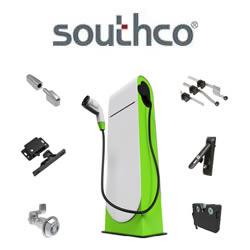LPP Combustion Generates Clean, Green Power Using Bio-ethanol
LPP Combustion, LLC, a Columbia, MD based innovator in liquid fuel technology, has successfully demonstrated the clean generation of green, dispatchable, renewable power on a 30kW Capstone C30 gas turbine while burning Naphtha and Bio-Ethanol.
LPP Combustion, LLC, a Columbia, MD based innovator in liquid fuel technology, has successfully demonstrated the clean generation of green, dispatchable, renewable power on a 30kW Capstone C30 gas turbine. LPP Combustion has developed a Lean, Pre-mixed, Prevaporized (LPP) combustion technology that converts a wide variety of liquid fuels into a substitute natural gas called LPP Gas™. Emissions from the C30 gas turbine, operating at full load on LPP Gas™ derived from bio-ethanol, are 3 ppm NOx and 18 ppm CO, at 15%O2, improving on the baseline natural gas emissions of 3 ppm NOx, 30 ppm CO, at 15% O2.
The bio-ethanol fuel (90% bio-ethanol/10% water) used for this commercial demonstration was provided by Caseus Energy LLC. This bio-ethanol fuel, which contains 10% water, was not refined to transportation quality, which requires less than 1% water, thereby saving refining cost and energy. Caseus Energy LLC, through its wholly owned subsidiary, Dubay Biofuels-Greenwood LLC, is in the process of launching its first commercial facility in Greenwood, WI based on the proprietary process of converting whey permeate (a cheese production waste stream) into fuel ethanol and dry yeast (a valuable dairy feedstock). Subject to further testing and process compatibility verification, Caseus Energy plans to implement LPP Combustion systems to produce ultra-clean, renewable electricity and steam in Combined Heat and Power facilities.
The performance and emissions of the Capstone C30 gas turbine were first characterized on natural gas to provide a baseline for comparison to the emissions on bio-ethanol generated LPP Gas™. No alterations were made to the dry, low emissions combustion system of the C30, and operation of the gas turbine has been excellent on 100% LPP Gas™, as well as on blends of natural gas and LPP Gas™. The gas turbine is on loan to LPP Combustion from Harbec Plastics, an Ontario, NY based plastics manufacturer. Harbec Plastics intends to convert all 25 of its Capstone C30 gas turbines to operation on biofuels, using the LPP Combustion technology, to eliminate the CO2 footprint from its plastics manufacturing.
LPP Combustion previously announced successful clean operation of the Capstone C30 gas turbine on naphtha using the same LPP Combustion system, and intends to demonstrate operation of this gas turbine on additional renewable fuels, including biodiesel and bio-butanol, in the near future. The LPP Combustion technology has also been demonstrated on commercial gas turbine combustor hardware for a 7 MW industrial gas turbine by demonstrating natural gas level emissions using a range of liquid fuels including ethanol, biodiesel, No. 2 diesel fuel and heating oil, kerosene, and JP8 aviation fuel. LPP Gas™ offers the cleanest use of renewable fuels by using existing or new gas turbine infrastructure while providing dispatchable, green energy to meet Renewable Portfolio Standards mandates. The LPP Combustion system allows for fuel flexibility, improved heat rate, and reduced maintenance without the usual 80% increase in emissions associated with conventional burning of liquid fuels. The LPP Combustion system is a skid-based technology which can be easily retrofitted to gas turbines and other existing gas-fired equipment without modifications to the combustion hardware.
Featured Product

